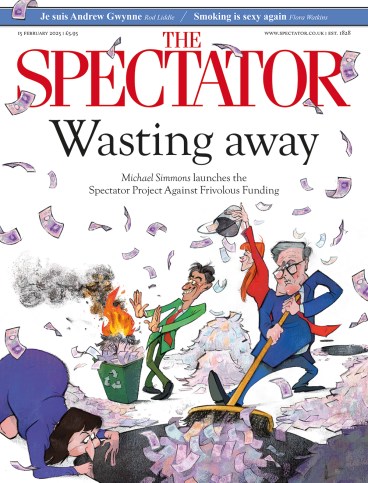
A poll out this week found that only 41 per cent of those aged 18 to 27 are proud to be British. Frankly I’m surprised the figure is that high. After all, if you add together the immigration of recent decades and the concerted effort to demoralise the population that has gone on, that is exactly the sort of result you would expect.
It has been achieved in a remarkably short space of time. In 2004, some 80 per cent of young people in the same age cohort said that they felt proud to be British. So within 20 years we have managed to halve our sense of national self-worth.
What explains it? Perhaps I should get the most dangerous explanation out of the way first. One reason why a lot of young people won’t say that they’re proud to be British is that they’re not British – at least not in any meaningful sense. As of June 2023, around 18 per cent of the population of England and Wales was born outside of this country. So almost a fifth of the population is not from here. And that is before you get into counting the people who are second- and third-generation migrants to the UK.
One of the great pretences of the UK and Europe for a couple of generations has been that once someone has the paperwork and becomes a citizen, they are as British as anyone else. It is a nicety partly borrowed from America, but a nicety nonetheless. If my parents had chosen to emigrate to Pakistan in the 1970s and I had been born in Pakistan, would I really feel Pakistani? Would I take pride in my identity? Would I feel the same pride as people whose families had lived in the country all their lives? I would have thought not, and I think most Pakistanis would agree with me. In fact I suspect they would regard it as somewhat audacious if I were to try to claim to have been a part of their history. For some reason it is different the other way around.
Within 20 years we have managed to halve our sense of national self-worth
Yet it isn’t. When someone whose family has been here for generations says ‘we’, you know that they are speaking not just on their own behalf or on behalf of everyone else in the country, but on behalf of their forebears. If I refer to the time when ‘we’ defeated Hitler, saw off the Kaiser or beat Napoleon, I am not saying so because I had any role in these battles, but because my ancestors did and I feel deep pride in, and gratitude for, that fact. Can someone whose ancestors do not come from this country feel the same pride? If their forebears were Commonwealth soldiers, very possibly, but otherwise I don’t believe it is common. Not least because the country they might have integrated into has taught them that Britain is both a destination for the world and a pretty wretched sort of place.
The fear that people would not integrate into the culture is one of the reasons why, during the age of mass migration, there has been a concerted effort to do down our history, to change it and lie about it. Several recent surveys have suggested that people are prouder of the culture of this country than they are of its politics or history. But it is hard to think of a single cultural institution here that actually likes our culture.
The other day a friend sent me some images of the books on display in the children’s area of Tate Britain. These included This is our Rainbow: 16 stories of Her, Him, Them and Us which appears to be a book about LGBTQIA+ heroes. There was also We Rise, We Resist, We Raise our Voices (you can guess) and a toddlers’ book called Standing up to Racism. So if you want to spend a day at Tate Britain you can not only be hectored by the illiterately anti-British curation that now dominates that appallingly misgoverned institution – you can also leave with a toddler activist who, while being none the wiser about Britain, has been indoctrinated into a set of idiotic (and dying) American cults.

It is the same in every cultural institution and place of learning. Go to the bookshop at the British Museum and you will see almost nothing that is nice or even informative about Britain and our history. What you will find promoted are the works of a set of bigoted, racist, anti-British writers who have a deep animus against our country and museums like the one selling their books. Who could be proud of their history if they had always been told that they mustn’t be proud of it and that there is nothing to be proud of anyway?
It’s not like any of this is a fringe movement. We have an attorney general who believes that ‘almost every element’ of the British Empire was ‘deeply racist’ and has fought for taxpayers to pay reparations to whatever hucksters he can find. The same man – Lord Hermer – has previously represented Gerry Adams.
Anyone following the British government’s inept and unjust Chagos deal will have noted that our officials and others keep saying that we have no choice but to engage in this disastrous plan because we have been told to do so by the International Court of Justice – as though we are not a sovereign country and must simply do what a foreign court tells us. This week it emerged that one of the judges who has tried to force us to give over the islands is an ex-official of the Communist party of China (which means she still is one). Meanwhile the lawyer Philippe Sands, that darling of the left-wing media circus, has made himself richer representing the government of Mauritius. These are the people we are up against.
Some people will despair at all of this. Personally I do not. This process of deculturation was achieved in the space of 20 years – which means that we need no more than 20 years to fix it.









Comments